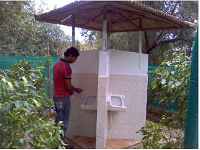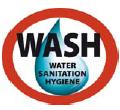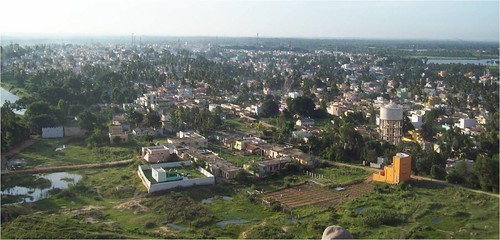/topics/toilets-and-urinals
Toilets and Urinals
A resource book on waterless urinals, an ecological sanitation method that saves water, energy and uses urine as a resource
Posted on 02 Feb, 2013 05:40 PM
Waterless urinals (WLU) save water, energy and use urine as resource ( Image courtesy: R Sakthivel)
Water: Towards a paradigm shift in the Twelfth Plan - A paper by Mihir Shah in the EPW
Posted on 22 Jan, 2013 10:37 AMA fundamental change in the principles, approach and strategies of water management in India has been proposed in the Twelfth Plan
Why is this paradigm shift needed ?
Green Sanitation Foundation, an NGO in Kolkata develops biotoilets, a unique toilet technology
Posted on 21 Jan, 2013 12:01 PMBiotoilets are biological toilets, named so because they convert human waste into non toxic, non contaminating water compatible with environmental standards, through application of multi strain bacteria culture, using aerobic forms of bacteria.
Report on Greening of the NRDWP: News and Policy Update from India WASH Forum e-Newsletter-Dec 2012
Posted on 11 Jan, 2013 07:44 AM Gender in WASH: Misplaced perspective in WASH sector
Gender in WASH: Misplaced perspective in WASH sector
National water policy views water as an economic good: Resistance shown by civil society with the move towards increasing the water and sewerage tariff- Bimonthly newsletter by India WASH Forum
Posted on 04 Jan, 2013 10:24 PM
This edition of the India WASH Forum has the following highlights:
An analysis of 2011 census data on household amenities with respect to drinking water sources and latrine facilities in urban areas of the country- A document by CPHEEO, Ministry of Urban Development
Posted on 04 Jan, 2013 07:27 PMThis document by Central Public Health and Environmental Engineering Organisation , Ministry of Urban Development, is an analysis of 2011 census data on of the drinking water and latrine facilities in urban areas of the country.
Impact of pit-toilet leachate on groundwater chemistry and role of vadose zone in removal of nitrate and E. coli pollutants in Kolar District, Karnataka, India
Posted on 04 Jan, 2013 02:00 PMGiven the many problems associated with flush toilets and the sewerage system, pit toilets offer a viable solution in India. However, the use of soakpits raises the question of groundwater contamination. This paper assesses the impact of pit toilet leachate on groundwater quality in Mulbagal town (pop ~ 60,000) in Karnataka relies on pit toilets, and uses groundwater for drinking.
Briefing papers on ‘Jal kothis’, ‘Matka filter’, 'Dug wells' and ‘Phayedemand shauchalaya’: Local innovative solutions in flood prone Bihar by Megh Pyne Abhiyan (2011)
Posted on 29 Dec, 2012 03:14 PMThe briefing papers include the following:

India's sanitation spot: Moving towards non-water based solutions in the future requires careful planning
Posted on 20 Dec, 2012 11:43 AM
Philippe Cullet





